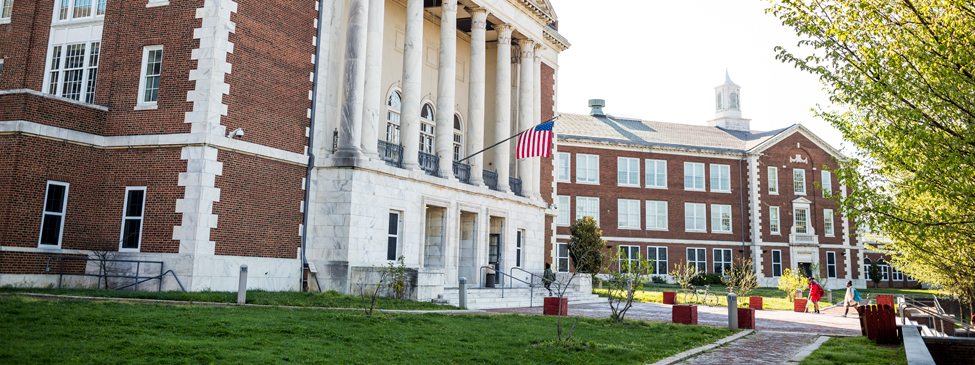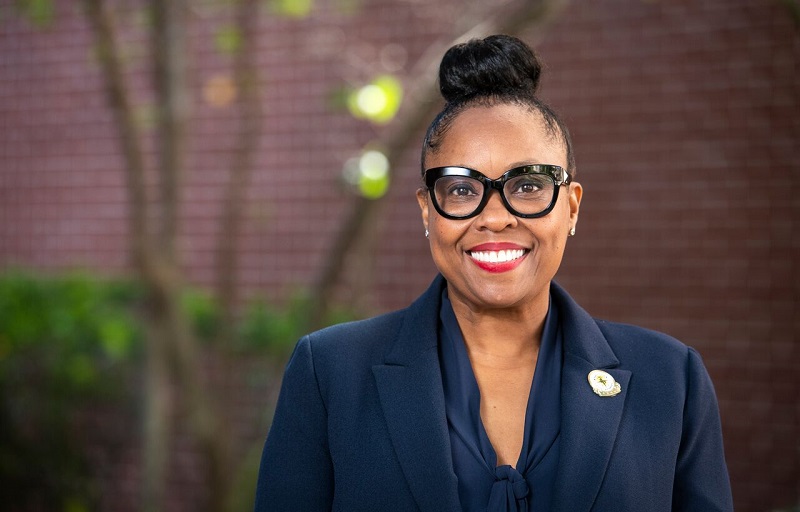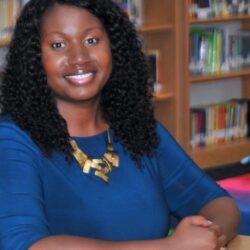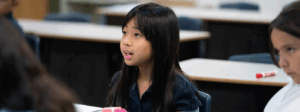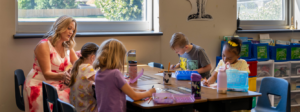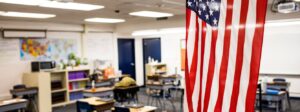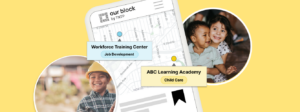Atlanta Public Schools (APS) Associate Superintendent for K-8 Dr. Emily Abrams-Massey informed the design of the ATL Leadership Network, which launched in 2017 as part of a five-year federal Education Innovation and Research grant. The ATL Leadership Network is a partnership between TNTP, APS, and DeKalb County School District (DCSD). Since 2018, TNTP and Dr. Massey have worked side-by-side to help a subset of APS schools in the Jackson and Douglass clusters achieve a collaborative, community-based approach for sustaining school improvements rooted in integrating two of the most promising innovations in education: collective leadership and authentic community engagement.
With 22 years of experience in school-based and district leadership roles, Dr. Massey is a model for all ATL Leadership Network leaders as they work toward building trusting relationships, cocreating a vision for student success, and engaging students and families as equal partners in education—all while developing strong instructional practices to improve student learning. As a principal, and now in her role as associate superintendent, most of Dr. Massey’s work has been within intensive environments that need a great deal of support. And she is no stranger to making a way out of no way, which—as she will tell you—is deeply rooted in her upbringing. She is the daughter of two career educators who supported the integration of schools, and the granddaughter of a Boston-area farmer who organized his community to provide a bus to transport local children to school so they could get an education.
I recently sat down with Dr. Massey to reflect on her experience as a principal and how it informs her support of school leaders in her current role, as well as our shared passion for engaging families as equal partners in education. Acknowledging that our world, including our education system, has been forever changed by the COVID-19 pandemic—with so much tragic loss of life as well as educational learning time—we also talked about what might emerge as a new path forward for schools.
What are some of the lessons that you learned as a principal that you pay forward to other principals in your role as an associate superintendent?
As Associate Superintendent, you want to make sure your principals don’t step on any of the landmines you encountered as principal. Although they will have their own unique set of successes and challenges, there are some guiding principles or “lessons” I have paid forward. One lesson I’ve tried to impress upon them is that we can easily get distracted if we focus on everything. It’s imperative that we streamline and condense efforts down to the three to five high-leverage action steps that make impact. As principals we may think that school improvement or turnaround is overly complicated and with all transparency, it can indeed be complicated. It can also simply be a matter of aligning or placing the right strategies in the associated gaps. Those strategies must be closely monitored and tracked and principals must be ready to pivot when the goal isn’t being met.
Another lesson I also try to pay forward is that everything hinges on the systems, processes, protocols, and plans you create to attend to the gaps you’ve identified. A quote that I’ve shared with them states that a bad system will beat a good person every time. Another important lesson is to use the collective strengths and the skillsets around them. The power is in the people you hire, develop, and coach. Give them the support and resources needed and they will truly move the work. Finally, the last lesson is to remove any barriers your teams may have that are not aligned to the goal of creating an environment where kids can thrive, master content, and prepare them to reach their ultimate potential.
In our work together to launch the ATL Leadership Network, TNTP allowed me to do a district download so that we could focus on what our schools needed and what our principals needed to create the systems required to move the work. You listened to our principals and valued their judgments. You respected the integrity of our district initiatives and embedded your support in those structures. Your flexibility in responding with a plan to layer in support based on where we were as a district was a game changer for us.
Why is it important to engage families as equal partners in education?
Our parents and stakeholders trust us to take care of the most precious people in their lives. The collective approach is the only way that we can move our work forward. Our stakeholders’ ability to support and engage often ranges from one end of the spectrum to the other. It is incumbent on schools to leverage and value whatever support a caregiver can offer and create opportunities to build caregivers’ skills in support of their child’s success.
A great example of this was cited in an Atlanta Journal–Constitution profile of Harper-Archer Elementary School in 2020, that described the mother of a first grader who struggled to read, contacting a teacher to explain she couldn’t help her child because she, herself hadn’t finished school. That teacher recorded and sent a video to the mom showing how to review sight wordssaid the student began to catch up. Our Harper-Archer teachers not only tell their parents that they need them to be their partners, but they also support them in how to be a partner.
We must know that without a collective effort—principal, teacher, parent, guardian, and community partnerships—the job is much more difficult; turnaround will move at a slower pace.
We’re almost a year into a crisis that has changed the way of life of everyone across the globe and has particularly impacted schooling. How has the connection between school and community evolved during the COVID-19 pandemic in APS?
Our community partners have really had to rethink how they support our families in all of this. What has impressed me most is the outreach of the community—organizations asking where our gaps are and how they can help fill them. Organizations have been innovative in how they have supported our families in satisfying their basic needs and instructional needs. They are willing to be malleable and flexible based on the needs of schools, including distribution of meals, providing laptops and other technology, and supporting schools in maintaining a focus on high-quality instruction.
As we think about TNTP, how the organization has pivoted to meet the current reality is impressive. Most of the support provided to our schools prior to COVID was in-person. TNTP had to rethink its approach. You were willing to adjust in order to sustain and maintain your level of support to our school leadership teams over this past year. That included helping to make Dr. Phyllis Earls’ vision for bringing her teachers at Frank Lebby Stanton Elementary School together with other APS teachers to share best practices for virtual learning, a reality. The TNTP team worked with Dr. Earls to organize and host 60 teachers from Frank Lebby Stanton Elementary School, Harper-Archer Elementary School, and Barack and Michelle Obama Academy in a virtual two-day professional learning forum that provided critical space to pause and learn from one another’s challenges and successes.
Looking ahead from where we are now, what can principals take from this past year of virtual learning?
I truly hope that principals have seen how resilient and innovative they have been in the midst of a global crisis. Principals and their school-based teams deserve our kudos and respect for adapting to this level of change and innovating in unchartered territory. I encourage my principals to take the skills they are learning, particularly related to virtual learning and effective community partnerships, into 2021–2022 and beyond.
I truly believe that this one experience will forever shift how we think about what a school day, and schooling in general, looks like. Principals and school districts have been thrust into rethinking instructional models and how they might be able to do things differently based on what they have been able to do virtually over this past year. I hear people saying, “Let’s get back to normal.” But “normal” has shifted, and it behooves us to figure out how to make schools work for our families in this new normal and if we find ourselves in future crises.
